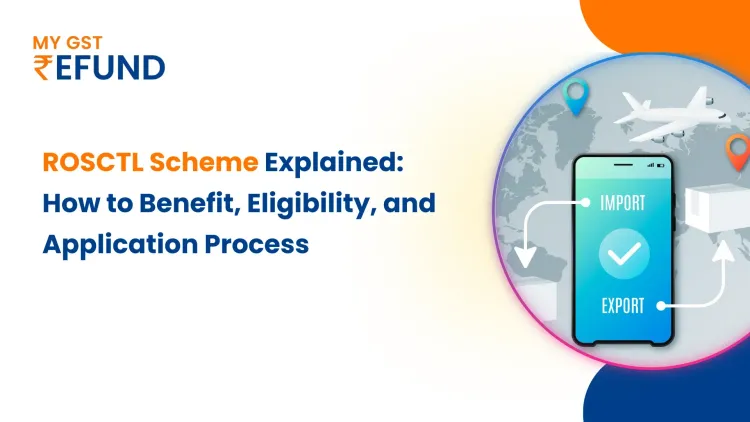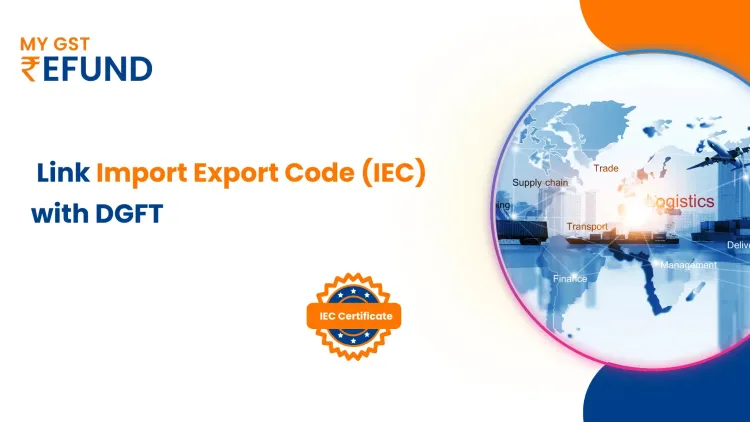GST Refund Delays
Published on: Sat Nov 04 2023
GST Refund Delays
The Goods and Services Tax (GST) system introduced in many countries has aimed to streamline taxation and promote economic growth. However, one persistent issue that businesses frequently encounter is the delay in receiving GST refunds. Delays in this reimbursement process can significantly impact businesses, affecting their working capital and liquidity.
The GST Refund Mechanism
The GST refund mechanism is designed to allow businesses to claim refunds for the tax they have paid on input goods and services. It ensures that taxes are not levied at multiple stages of production and distribution, enabling a smoother flow of goods and services in the economy. The refund process typically involves the submission of claims through the GST portal, verification by tax authorities, and the disbursal of refunds.
Causes of GST Refund Delays
a. Procedural Complexities: The complexity of the refund process, including documentation requirements and compliance checks, often leads to delays. Businesses must meet specific criteria and provide accurate documentation, which can be time-consuming.
b. Verification and Scrutiny: Tax authorities conduct thorough scrutiny to validate refund claims, leading to delays due to the volume of claims and the meticulous verification process.
c. Technology and Infrastructure Issues: Technical glitches or inadequacies in the GST portal can hinder the filing and processing of refund claims, causing delays in disbursement.
d. Policy Ambiguities: Ambiguities or frequent changes in GST laws and regulations can result in confusion for businesses, leading to errors in filings and subsequent delays in refunds.
Verification process
The complex verification process of GST (Goods and Services Tax) refund is a critical step in the refund mechanism, which aims to ensure the legitimacy of refund claims. While the verification process is essential to prevent fraudulent claims and maintain the integrity of the GST system, it can often be time-consuming and cumbersome. Here is a detailed overview of the complex verification process of GST refund :
1. Application Submission:
The process typically begins with a registered taxpayer filing a refund application with the GST authorities. The taxpayer must provide details of the GST paid and the grounds for the refund, such as exports, inverted duty structure, or accumulated input tax credits.
2. Preliminary Data Checks:
The GST authorities initiate preliminary data checks to verify the authenticity of the refund application. They review the application to ensure it complies with the prescribed format and contains all required information and documents.
3. Data Matching:
One of the critical aspects of the verification process involves matching the data provided by the taxpayer with the data available in the GST system. This includes cross-referencing the details of the outward supply (sales) with the inward supply (purchases) data, tax payments, and other financial records.
4. Reconciliation of Input Tax Credit (ITC):
In cases where a refund is claimed due to the accumulation of excess input tax credit, the authorities perform a thorough reconciliation of the ITC claimed by the taxpayer. This reconciliation ensures that the ITC availed is accurate and complies with the GST rules.
5. Scrutiny of Documents:
The tax authorities scrutinize the documents provided by the taxpayer, including invoices, shipping documents, and export-related documents, to verify their authenticity and compliance with GST regulations.
6. Physical Verification (if required):
In some instances, the tax authorities may conduct physical verification of the business premises, especially when there are concerns about the veracity of the refund claim. This step can be time-consuming and may involve site visits and document inspections.
7. Anti-Fraud Measures:
To prevent fraudulent refund claims, authorities employ various anti-fraud measures, such as data analytics and risk-based assessment, to identify suspicious or irregular refund applications.
8. Detailed Audit (if necessary):
In cases of larger refund claims or when there are red flags during the preliminary verification, tax authorities may initiate a detailed audit of the taxpayer's financial records and GST compliance to ensure that the claim is valid.
9. Refund Sanction:
Once the verification process is complete and the authorities are satisfied with the legitimacy of the refund claim, they proceed to sanction the refund. The sanctioned amount is then credited to the taxpayer's GST account or bank account, depending on the chosen refund mode.
10. Communication and Updates:
Throughout the verification process, tax authorities are expected to maintain communication with the taxpayer, providing updates on the status of the refund application and any additional information or documents required.
Cash Flow Constraints
For businesses, delayed GST refunds can result in significant cash flow constraints. This hampers their ability to invest in growth, pay suppliers, or manage day-to-day operational expenses.
Impact on Exporters
Delays in Goods and Services Tax (GST) refunds can have a significant and detrimental impact on exporters in India. Exporters play a crucial role in boosting the country's foreign exchange earnings and economic growth. When they encounter difficulties in receiving timely GST refunds, it affects not only their businesses but also the overall competitiveness of Indian exports. Some of the major problems are:
1. Working Capital Constraints
Exporters often incur significant working capital expenses, including those related to the procurement of raw materials, manufacturing, and logistics. Delays in GST refunds mean that a substantial portion of their working capital remains tied up, leading to cash flow constraints. This, in turn, can hamper their ability to meet operational expenses, invest in business expansion, and seize new opportunities.
2. Loss of Export Competitiveness
In the global marketplace, pricing is a critical factor. Exporters facing delays in receiving GST refunds may find it challenging to price their products competitively. This loss of competitiveness can result in a decline in demand for Indian goods and services in the global market, potentially causing a drop in export volumes.
3. Inefficiency in the Supply Chain
Delays in receiving GST refunds can disrupt the supply chain, affecting various stakeholders, including suppliers, logistics providers, and distributors. These disruptions can lead to inefficiencies in the production and distribution process, ultimately impacting the overall supply chain performance.
Solutions to Expedite GST Refunds
To address the issue of GST refund delays, several measures can be implemented:
a. Strengthening Technological Infrastructure: Investing in robust IT infrastructure and addressing GSTN issues can significantly improve the efficiency of the refund process.
b. Simplifying Compliance: Providing businesses with user-friendly interfaces and guidelines for compliance can reduce errors and streamline the gst refund application process.
c. Transparency and Timely Communication: Regular updates on the status of refund claims and reasons for delays can help businesses plan their finances effectively.
d. Automation: Leveraging automation for routine tasks in the refund process can reduce the need for manual intervention, thus expediting refunds.
e. Skilled Workforce: Training tax officials to process refunds more efficiently and in a time-bound manner is crucial.
Delays in GST refunds are a significant concern for businesses in India. These delays can have adverse effects on cash flow, especially for small and medium enterprises. To address this issue, a combination of technological improvements, streamlined processes, and increased transparency is essential. An efficient and timely GST refund mechanism is crucial for the success of GST as a whole and for fostering a business-friendly environment in the country.
Are you looking for gst refund delays solution? MYGST REFUND offers GST refunds on exporters , business , TCS And TDS refund, Refund under Inverted Duty Structure, GST Notices & Technical Replies and many more if your GST application is rejected. Get in touch with us today.
Related Posts





